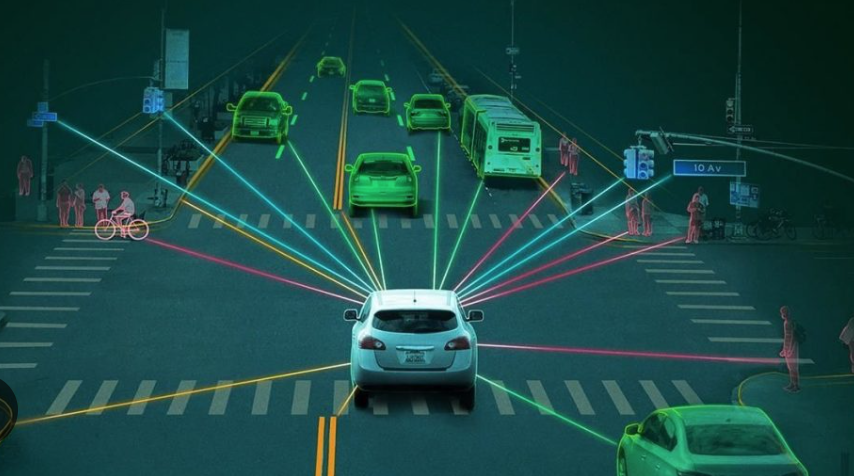“AI-Powered Bus Travel Time Prediction: Taking the Guesswork Out of Traffic Congestion Management!”
Introduction
The advent of Artificial Intelligence (AI) has revolutionized the way we live, work and travel. In particular, AI has enabled the development of new and improved real-time bus travel time prediction systems in traffic congestion management. With this technology, transportation authorities can better predict the duration of bus trips and develop better strategies for reducing delays and improving the flow of traffic. This article will provide an overview of how AI is used for real-time bus travel time prediction in traffic congestion management. It will discuss the various components of the system, from data collection and analysis to route optimization and route planning. In addition, it will provide insights into the challenges associated with this technology and how AI can help to overcome them. Finally, it will discuss the potential applications of this technology and the benefits it can bring to transportation authorities.
Exploring the Benefits and Challenges of Utilizing Artificial Intelligence for Real-Time Bus Travel Time Prediction in Traffic Congestion Management
Today’s transportation networks are highly complex, and the ability to accurately predict travel times and manage traffic congestion has become increasingly important. Artificial intelligence (AI) has the potential to vastly improve bus travel time prediction, providing efficient, reliable and cost-effective solutions. This paper will explore the benefits of utilizing AI-driven solutions for real-time bus travel time prediction in traffic congestion management, as well as the challenges that may come with their implementation.
The use of AI in the transportation sector has the capacity to provide accurate predictions of travel times and congestion management in real-time. AI-driven solutions have the potential to reduce the need for manual data collection, as well as the cost of traffic management. For example, AI-driven solutions could use real-time data from sensors, cameras and other sources to detect congestion levels and adjust bus routes accordingly. Such solutions could also provide more accurate predictions of travel times, allowing for better decision-making and the effective management of traffic.
Apart from the potential cost savings and efficiency gains, the use of AI for real-time bus travel time prediction can also offer a number of environmental benefits. AI-driven solutions have the potential to reduce traffic congestion and improve air quality, by eliminating unnecessary stops, rerouting buses or providing alternative travel options. This can also help reduce noise pollution, as fewer buses on the road can result in smoother and quieter journeys.
Despite the potential benefits, there are also a number of challenges associated with the implementation of AI-driven solutions for real-time bus travel time prediction. The accuracy of such solutions is dependent on the quality of data that is collected, which can be difficult to acquire. Furthermore, AI-driven solutions require significant investment in hardware and software, as well as ongoing maintenance. Additionally, the ethical implications of using AI-driven solutions must also be taken into consideration, as the potential for abuse or misuse is ever-present.
In conclusion, the use of AI for real-time bus travel time prediction has the potential to bring about a number of benefits, including cost savings, improved efficiency and environmental gains. However, there are also a number of challenges associated with the implementation of such solutions, which must be taken into consideration before implementation.
Examining the Potential of AI-Based Solutions to Improve Traffic Congestion Management Through Real-Time Bus Travel Time Prediction
The rapid population growth of cities around the world has led to severe traffic congestion and poor public transport management. This has resulted in wasted time, money and resources, as well as a decrease in quality of life for city residents. Artificial intelligence (AI)-based solutions are a promising way to tackle these issues, particularly in the area of real-time bus travel time prediction.
AI-based solutions can be used to accurately predict bus arrival times, allowing passengers to plan their trips more effectively and reducing the risk of overcrowding or missed connections. This would enable commuters to travel with greater certainty and comfort, as well as providing traffic authorities with the data required to better manage bus networks.
AI-based solutions can also be used to identify the most efficient routes for buses to take in order to reduce congestion on the roads. By utilizing real-time traffic data, AI systems can determine the quickest and safest routes for buses, resulting in faster and smoother journeys for passengers.
Furthermore, AI-based solutions can help to reduce air pollution and improve safety on the roads. By using sensors and cameras to detect traffic patterns, AI-based systems can detect potential hazards and alert drivers to slow down or take alternative routes. This would lead to fewer traffic accidents and a reduced reliance on fossil fuels, which would help to improve air quality in cities.
In conclusion, AI-based solutions have the potential to dramatically improve traffic congestion management through real-time bus travel time prediction. Such solutions would provide passengers with a more reliable and efficient way of travelling, while also reducing air pollution and improving safety on the roads. Therefore, AI-based solutions should be explored and implemented in order to ensure that cities are better able to handle the increasing demands of their populations.
Using Deep Learning Techniques to Enhance Real-Time Bus Travel Time Prediction for Traffic Congestion Management
Real-time bus travel time prediction has become increasingly important in managing traffic congestion in urban areas. As the population continues to grow and our cities become more complex, traffic congestion has become a major problem. To effectively manage this problem, it is essential to accurately predict how long it will take for buses to travel from one place to another. However, existing methods of bus travel time prediction are not always reliable and have difficulty dealing with dynamic traffic environments.
Fortunately, deep learning techniques offer a promising solution. Deep learning is an advanced machine learning technique that is well-suited for complex tasks such as bus travel time prediction. It can effectively learn from large amounts of data, thereby allowing for more accurate predictions. Furthermore, deep learning models can be trained to automatically adapt to changing traffic conditions, thus providing more reliable predictions.
Recent studies have demonstrated the effectiveness of deep learning techniques for bus travel time prediction. For instance, a research team from the University of California, Los Angeles developed a deep learning model that can predict travel times with up to 97% accuracy. Similarly, a team from the Massachusetts Institute of Technology developed a deep learning system that outperformed traditional methods by up to 20%.
In addition to providing more accurate predictions, deep learning can also provide other benefits. For instance, it can provide real-time alerts to notify commuters of delays, which can help them plan their trips more efficiently. Furthermore, deep learning models can be used to detect traffic patterns and suggest alternative routes that can help reduce traffic congestion.
For these reasons, deep learning techniques should be used to enhance real-time bus travel time prediction for traffic congestion management. Deep learning models are more accurate and can adapt to changing traffic conditions, thus providing more reliable predictions. Furthermore, they can provide additional benefits such as real-time alerts and route suggestions. By using deep learning techniques, we can ensure that our cities are well-managed and our commuters are well-informed.
Harnessing the Power of AI to Improve Real-Time Bus Travel Time Prediction in Traffic Congestion Management
Today’s world is characterized by rapid urbanization and the increasing complexity of transportation networks, leading to increased traffic congestion and decreased bus travel time. To address this issue, many cities are turning to the power of artificial intelligence (AI) to improve real-time bus travel time prediction in traffic congestion management.
AI-enabled prediction models provide unprecedented accuracy and scalability for predicting bus travel times in urban areas. These models can learn from historical traffic data to identify patterns and trends, and apply this information to accurately predict future travel times in real-time. In addition, AI-enabled models can be used to identify potential traffic congestion areas, allowing for proactive management of traffic flows.
AI-enabled prediction models can also be used to optimize bus routes in real-time. By analyzing traffic patterns, AI-enabled prediction models can determine the most efficient bus routes to take, which can reduce travel time and improve overall efficiency of the transportation network.
Finally, AI-enabled prediction models can be used to identify and recommend alternative routes in the event of an unexpected traffic disruption. By analyzing current traffic flows and road conditions, AI-enabled prediction models can identify alternate routes that are faster and more efficient than the original route. This can help minimize delays and ensure that passengers arrive at their destination on time.
In conclusion, AI-enabled prediction models have the potential to revolutionize real-time bus travel time prediction in traffic congestion management. By leveraging the power of AI, cities can better manage traffic flows and optimize bus routes in real-time, resulting in improved travel times and overall efficiency.
Exploring the Role of AI in Facilitating Real-Time Bus Travel Time Prediction in Traffic Congestion Management
The issue of traffic congestion is a major problem across the world, and it has become increasingly important to find solutions that can help manage this issue. Artificial Intelligence (AI) has emerged as a promising tool to facilitate real-time bus travel time prediction, which can be used to optimize routes and schedules, thus helping to reduce the impact of traffic congestion.
The potential of AI to help manage traffic congestion lies in its ability to process large amounts of data quickly and accurately. AI can use historical data and current traffic conditions to generate predictions about bus travel times, taking into account factors such as road capacity, traffic flow, and accident rates. This information can be used to help plan routes and schedules that will minimize delays and maximize efficiency, allowing buses to reach their destinations in a timely manner.
In addition to predicting travel times, AI can also be used to identify congested areas and recommend alternate routes. This information can be used by city planners to identify areas that require infrastructure improvements, such as additional lanes, improved traffic signals, or improved public transit services.
Moreover, AI can also be used to provide real-time updates to passengers. By informing passengers of traffic conditions and delays, they can plan their trips accordingly and make informed decisions about their travel routes. This can help reduce the number of people who choose to drive in congested areas, thus reducing the impact of traffic congestion.
In conclusion, AI has the potential to play a significant role in facilitating real-time bus travel time prediction, which can help reduce the impact of traffic congestion. AI can be used to generate predictions about travel times and identify congested areas, as well as provide real-time updates to passengers. With the help of AI, cities can better plan routes and schedules, allowing buses to reach their destinations in a timely manner.
Conclusion
In conclusion, Artificial Intelligence for Real-Time Bus Travel Time Prediction in Traffic Congestion Management is a promising technology that can help cities better manage their traffic congestion. AI-enabled systems can provide more accurate and timely predictions of travel times, allowing cities to make necessary adjustments to their traffic management plans. As AI technology continues to grow in sophistication, its potential for helping cities better manage their traffic congestion will continue to increase.


